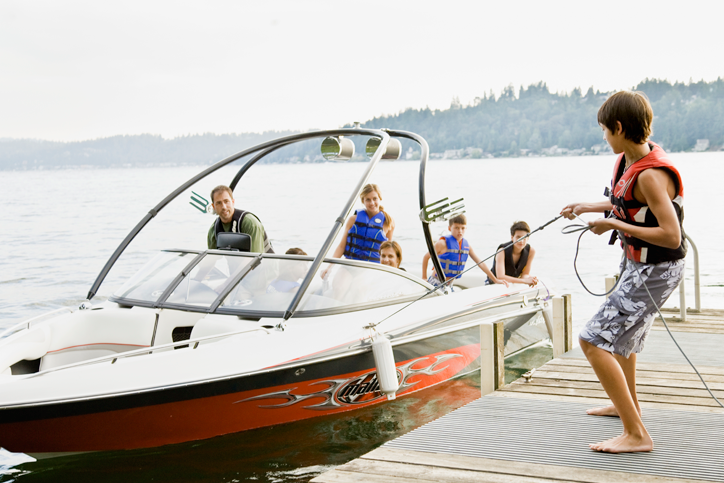Boat safety reminders
 The first weekend in May is officially the PNW’s opening of boating season.
The first weekend in May is officially the PNW’s opening of boating season.
Is your boat ready?
For more than 30 years, PEMCO has published its annual boat safety checklist to help boaters make sure their vessels are seaworthy before that much-awaited debut run. If you haven’t gone through it yet, now’s the time!
While the list itself hasn’t changed much, the number of people who likely need it has grown. The pandemic saw a boom in first-time boat purchases as people scrambled for socially distanced ways to unwind.
According to the National Marine Manufacturers Association, powerboat sales surged 12% in 2020 and continued to climb in 2021. About half the sales were what the Association called “entry-level price point” freshwater fishing and pontoon boats.
Now, with a couple years of wear-and-tear on those boats, their owners will want to make time for these extra safety checks, as well:
What should boaters check before heading out?
Besides going through the annual boat-safety checklist (or hiring a marine mechanic to do it), boaters will want to:
-
Ensure all operators have completed a boating safety course. As kids get older, they’ll want to take their turn at the wheel! Both Washington* and Oregon require boaters to complete a boating safety course, which covers basic boating terms, safety, navigation aids, and more. (And if you’d like to go a step further, consider taking a U.S. Coast Guard Auxiliary and/or Power Squadron course, which qualifies you for a discount on your insurance.)
-
Inspect life jackets. Have the kids outgrown the life jackets you bought with the boat? Did rusty snaps, rips or signs of mildew appear during those months in storage? If so, it’s time to replace your life jackets.
-
Check the health supplies you carry. Make sure your onboard first aid kit isn’t now stocked with expired or depleted medications. Also, pack a few extra days’ worth of essential prescriptions, motion sickness and upset stomach remedies, pain reliever, antihistamine, instant ice packs, RV/marine toilet paper, and personal hygiene supplies.
-
Carry an extra phone charger. Many boats offer USB ports to keep electronics charged, and your phone is a critical safety device.
-
Test your onboard smoke and carbon monoxide detectors. Just like the devices in your home, your boat’s detectors degrade over time. Make sure they’re corrosion-resistant, marine-grade models. It’s also a great time to confirm your fire extinguisher’s dial registers green, showing it’s ready to go.
-
Replace weather-wise essentials. You probably unpacked the sunscreen, insect repellant, extra sunglasses, and rain ponchos you carried last year. Time to bring them back!
*In Washington, boaters born before Jan. 1, 1955, are exempt.
Do I need boat insurance?
Neither Washington nor Oregon mandates you carry insurance to legally operate a boat. That means unless your lender requires it, you don’t have to buy it. However, you put yourself at serious financial risk if you operate a boat without adequate liability coverage. Here’s a quick rundown on boat-insurance basics (hint: it’s like a combination of auto and home coverage with a few important differences).
Mariner insurance can provide peace-of-mind with its Agreed Value coverage, which you can adjust to make sure it reflects your boat’s current market value. This is important if, sadly, your boat is ever a total loss. You also can customize your policy to cover jet-skis, fishing equipment, personal belongings and mechanical breakdowns.
Have a fun and safe boating season, PNW!
MORE STORIES LIKE THIS FROM PEMCO:
Protect your boat from theft, spot stolen-boat scams | PEMCO
Money saving tips for boaters | PEMCO
Share on social media